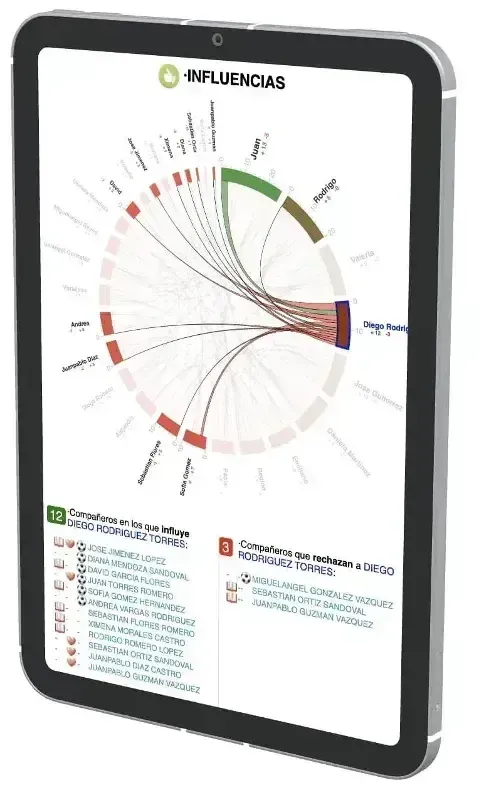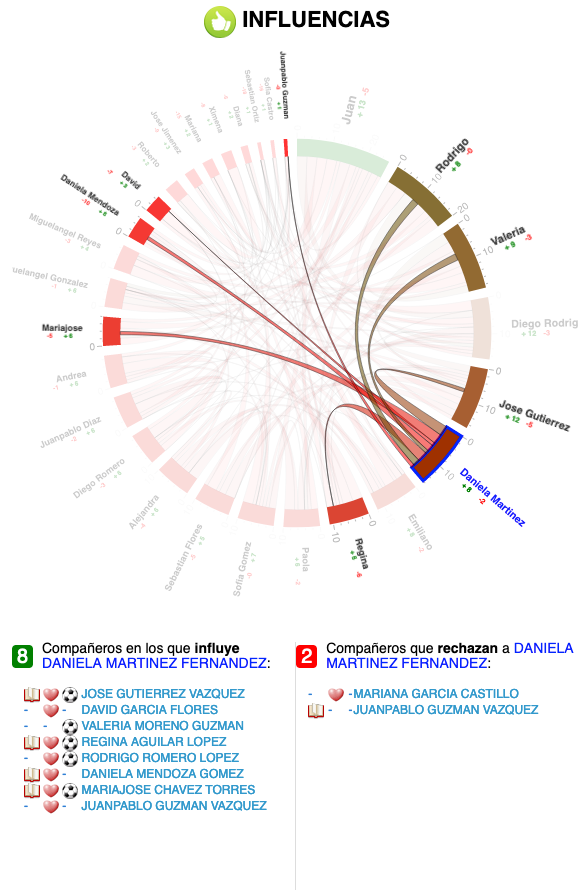.
What does your school obtain from this tool?
01
Understand
The social relationships among students.
02
Identify
Conflicts.
03
Intervene
Proactively.
04
Prevent
Bullying.
05
Assess the impact
Of social interventions.

Problems you prevent (or mitigate) when using the Socio-emociogram
1.Bullying: Habilmind’s Socio-emociogram detects behaviour patterns associated with bullying, enabling preventive and corrective actions.
2.Exclusion and rejection: Identifies cases of student exclusion to promote inclusion and mutual respect within the school.
3.Conflict in coexistence: Detects conflicts among students to implement mediation strategies and foster a positive environment.
4.Difficult parent meetings: Facilitates communication about student conflicts, allowing issues to be addressed effectively.
5.Lack of empathy and assertiveness in students: Identifies difficulties in emotional expression and interpersonal communication to design activities that develop these skills.
6.Teamwork issues: Assesses student group dynamics and detects obstacles to improving collaboration.
7.Lack of group cohesion:
Analyses integration within groups to strengthen a sense of belonging and cooperation among members.
On which platforms of the Habilmind Ecosystem is this tool available?
Webinar on the Socioemociogram by UNIR
With José Fernando Calderero, Dean of the Faculty of Education at the International University of La Rioja, and Déborah Martín, expert in the socio-emotional field and author of the tool.
Links of interest
Article by the Interuniversity Association for Pedagogical Research
The Interuniversity Association for Pedagogical Research (AIDIPE) has published a volume that includes the article "Socio-emociogram: instrument for the online assessment of socio-emotional skills in the classroom", by Jesús de Juan Alcacera and Déborah Martín Rodriguez. Read more
Intergroup Sociogram
It allows the sociometric analysis of all the groups in a course with the aim of facilitating decision-making in the creation of new groups, providing objective information on the dynamics of relationships between classmates. That is, influences and rejections taking into account different criteria such as intellectual, emotional and leisure. Read more
Final Degree Project: Educational Innovation ProjectDouble Degree in Primary Education and Early Childhood Education
In short, Habilmind is a program recognized both nationally and internationally for the number of indicators it allows for analysis. When the school's priority is to study and improve socio-emotional and behavioral skills, these are the following tests that the program proposes. Read more
Minimizing the social desirability of the Socioemociogram
The Socio-emociogram, by addressing the social desirability in the responses of those evaluated, guarantees accurate results to effectively intervene in the development of students' socio-emotional skills and social relationships. Read more
Try it for free, with no obligation
Request access to the tool through the "FREE REGISTRATION" button to explore it first-hand.
(*) Free trials are available for schools, colleges, institutes, universities, clinical psychologists, and researchers.




































